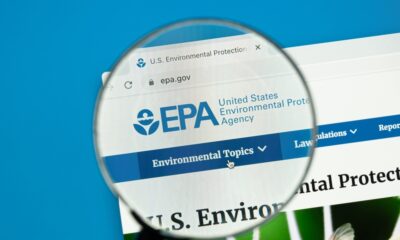

Features
Do we have the moral authority to attack big tobacco?
At a recent sustainable investment event, I inadvertently launched into unscripted criticism of the tobacco industry. This led one delegate to accuse me of dictating “how people should think“, for which I had “no moral authority“. Au contraire, monsieur.
For the record (personal opinion alert), I take a libertarian attitude towards other people’s recreational drug use, from alcohol, sugar, through tobacco, to cannabis and cocaine.
My drug of choice is a chilled Gavi di Gavi 2008 or Viognier 2011 and cheese (though not technically a drug – the mouldier, runnier and smellier the better). I do not care what people put into their own bodies, as long as it does not harm anyone else, that they are not coerced into doing so or aren’t too young to make an informed choice.
What I object to strongly and publicly, and will speak passionately about, are those who still think it is okay to profit from selling products that cause children in countries with no health education or public health service to develop cancer. There is no best-in-class defence for this; it is an offensive stock. Period.
Let’s call this what it really is: child abuse. That the child consumer is poor, foreign and most likely non-white doesn’t make the crime any less awful, unless you’re a little bit prejudiced and xenophobic to boot.
Let’s face it. This is an industry that profits from addiction and needs to top up its customer base, who keep inconveniently dying. Children are great tobacco consumers as you get the longest, albeit shortened, lifetime value from their addiction.
This is an industry that kills more people per year than died each year of the second world war. Many of those who suffer ill health or die are the innocent victims of passive smoking; often these are children suffering as a result of their parents’ addiction. Oh, and that happens in the UK, too.
This is an industry that fought tooth and nail to conceal the solid evidence and then waged a disinformation campaign against the public and policymakers of tobacco-related cancer (see excellent work of Jeffrey Wigand, whose story was made into a film in 1999, The Insider, starring Russell Crowe and Al Pacino).
This is an industry that is seeing all its sales growth in the developing world. Countries without the aforementioned health education or public health service. How can you make an informed choice if you’re not informed of the huge harm these drugs do? Who picks up the pieces of their ruined lungs and life?
I reiterate that it is absolutely your choice what harm you do to your own body, just as it is my right to do what I want to mine. If someone advocated banning white wine, I’d be pretty annoyed. There would be hell to pay from Mrs L if chocolate was banned. But we know what we’re doing, we’ve had the education to make an informed choice about what we eat and drink, and we have the national health service to pick up the pieces of our poor lifestyle choices.
We’ll agree to differ if it’s acceptable in your professional opinion to advocate profiting from child abuse in the developing world. The euphemism of a defensive stock just means it’s an addictive drug immune to economic conditions.
I’d like to think that I was such a skilled orator that I could actually dictate “how people should think“. I’m clearly not and I obviously can’t.
But I retain the moral authority to attack this deceitful, ruthless and exploitative industry. I can criticise it in any way I see fit. If that’s dictating how people should think, then I am guilty as charged. I just thought I was passionately expressing the only moral or humanitarian perspective.
 Cartoon: Polyp.org.uk; Photo: James Alby via Flickr
Cartoon: Polyp.org.uk; Photo: James Alby via Flickr
Further reading:
Not just unethical, tobacco is a financially unsustainable investment
Blowing smoke in Africa: big tobacco and child smokers
Fighting the long fight against tobacco
































